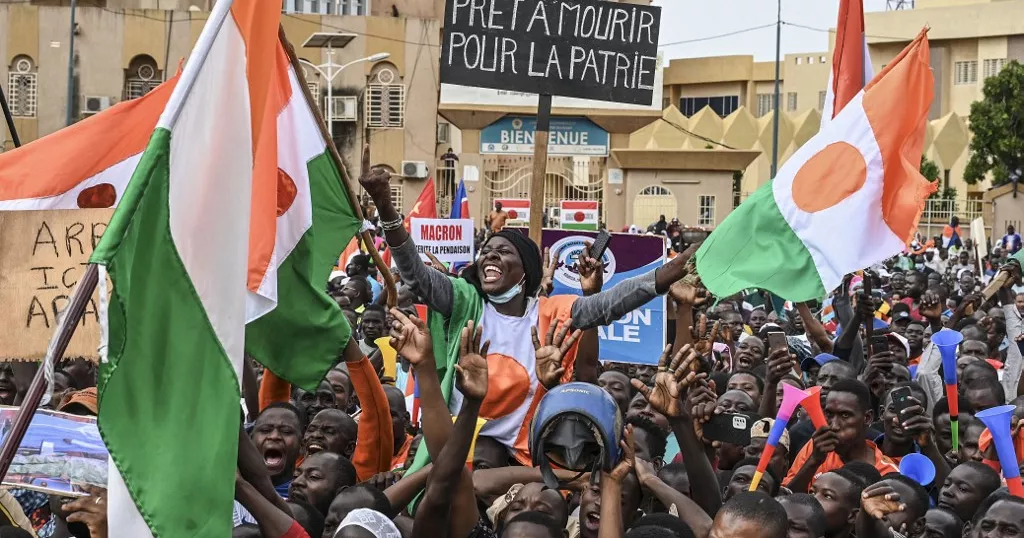Niger faces deepening political and economic crisis

Niger faces deepening political and economic crisis
Niger, the expulsion of Orano from uranium mines, increasing influence from China and Russia, economic downturn, and strained relations with neighboring Benin paint a bleak picture of the country’s current political and economic landscape.
Located west of the Aïr Massif in northern Niger, the Imouraren site is renowned as one of the world’s largest uranium reserves, holding approximately 200,000 tonnes.
Orano secured its mining permit in 2009, with pilot projects slated to commence in 2024 after a hiatus since 2015.
However, the new Nigerien government capitalized on this delay to enforce its decision to expel Orano.
This move marks a broader trend of progressive expulsion of French interests from Niger.
Following the July 26, 2023 coup d’état, the Nigerien military junta has pivoted towards closer ties with Russia, pledging to sever connections with the “domineering and colonialist” West, consequently reevaluating mining concessions.
This shift poses challenges for Europe, particularly amidst its renewed focus on nuclear energy.
According to the International Atomic Energy Agency, Niger supplied over a quarter of the European Union’s uranium in 2022, with France importing about 20% of its uranium from Niger—a substantial production coveted by other global powers.
The Nigerien military coup, led by General Abdourahamane Tiani against President Mohamed Bazoum, represents the sixth successful coup in West Africa since 2020.
Anti-France disinformation campaigns on platforms like WhatsApp, Facebook, and Telegram have amplified false allegations of French involvement in destabilizing the country.
Pro-Russian groups, notably the Pan-African Group for Trade and Investment (GPCI), led by Harouna Douamba, have played pivotal roles in disseminating these narratives.
The aftermath saw France’s forced withdrawal of 1,500 troops deployed to combat armed terrorist groups and the subsequent closure of the French embassy in Niamey in January 2024.
The United States, present in Niger since 2012 for counter-terrorism efforts and uranium mining, faces uncertainties.
Their partnership with the DASA mine, operated by Canada’s Global Atomic Corporation, hangs in the balance following the Nigerien junta’s revocation of military cooperation agreements in January 2024, prompting the repatriation of 1,000 American soldiers.
Amidst these geopolitical shifts, tensions mount over the prospect of Russian and Iranian involvement in Niger’s mineral resources.
Russia has capitalized on these shifts by forming the Sahel States Alliance with Mali and Burkina Faso, diverging from the French-led G5 Sahel.
The visit of Russian Deputy Defense Minister Yunus-bek Yevkurov in December 2023 underscored Moscow’s intent to deepen defense cooperation, including troop deployments to Niamey in April 2024.
Meanwhile, China’s influence in Niger dates back to 2007 with the Azelik uranium mine and includes significant investments like the pipeline linking Niger to Benin’s Sèmè port, crucial for exporting 90,000 barrels of oil daily.
However, strained relations between Niger and Benin following the coup led to border closures, impacting regional trade dynamics.
Recent tensions culminated in the arrest of five Wapco Niger employees by Beninese authorities, exacerbating economic tensions.
Despite these challenges, Niger is projected to have Africa’s highest economic growth rate in 2024, with an expected GDP increase of 11.2%, driven by oil exports through the newly established pipeline.
However, economic sanctions imposed by the Economic Community of West African States (ECOWAS) post-coup have severely affected Niger’s economy, leading to a sharp rise in food prices and increased hardship for local populations.
The crisis underscores deepening instability and economic vulnerabilities in Niger, exacerbated by ongoing security threats and diplomatic tensions with neighboring countries.
The path forward remains uncertain, with implications reaching far beyond Niger’s borders, impacting regional stability and international relations.
About The Author
dailymailafric
I am an avid African news observer, and an active member of Daily Mail Africa.
I’m Passionate about staying informed on diverse topics across the continent,
I actively contribute to publishing on political, economic and cultural developments in Africa.



